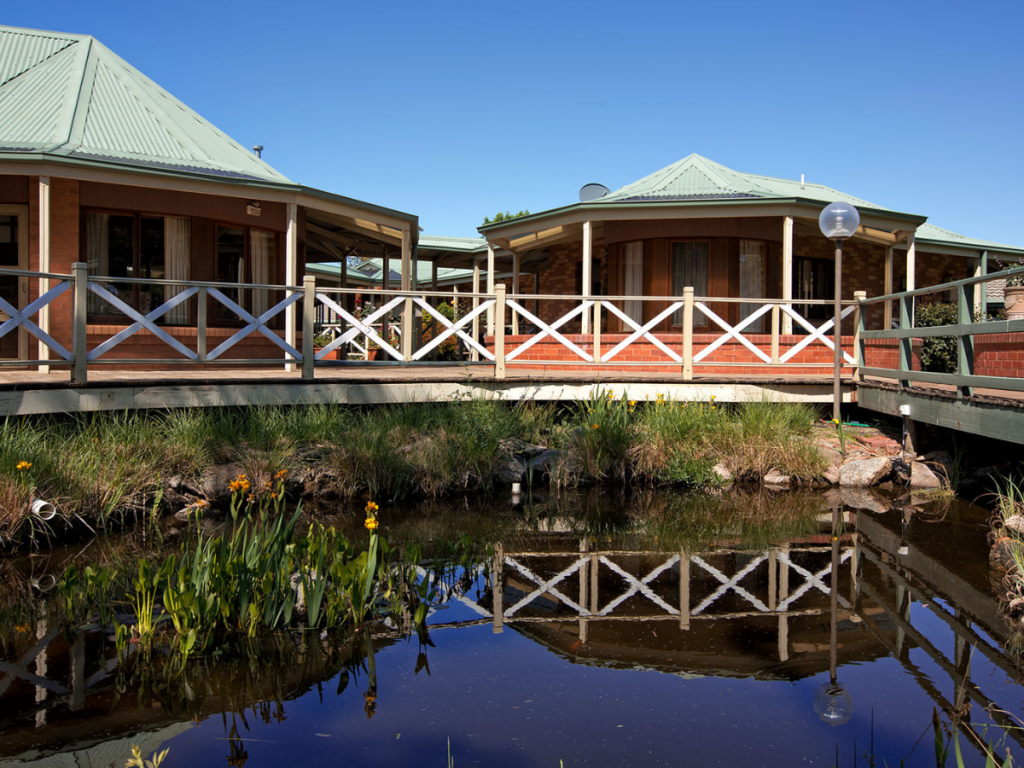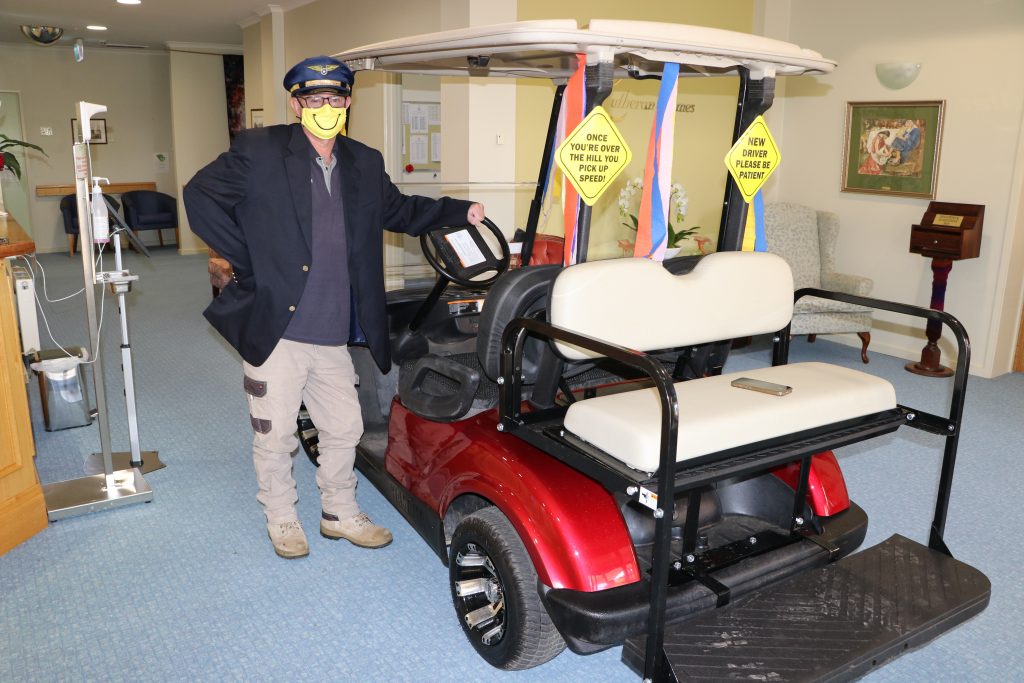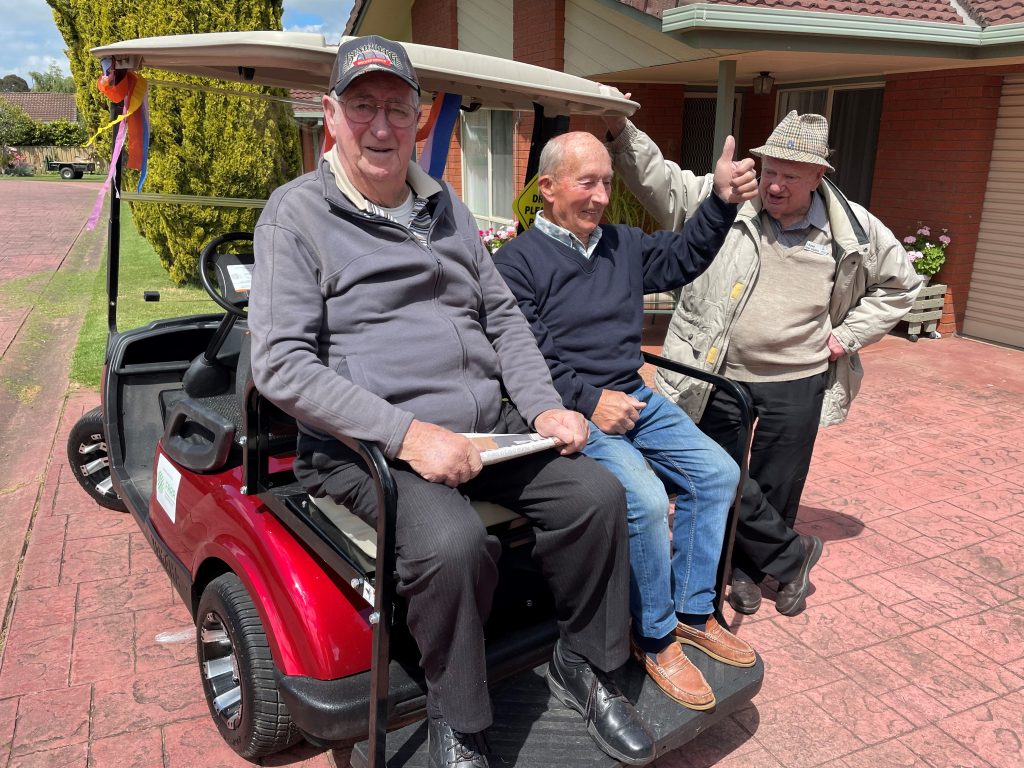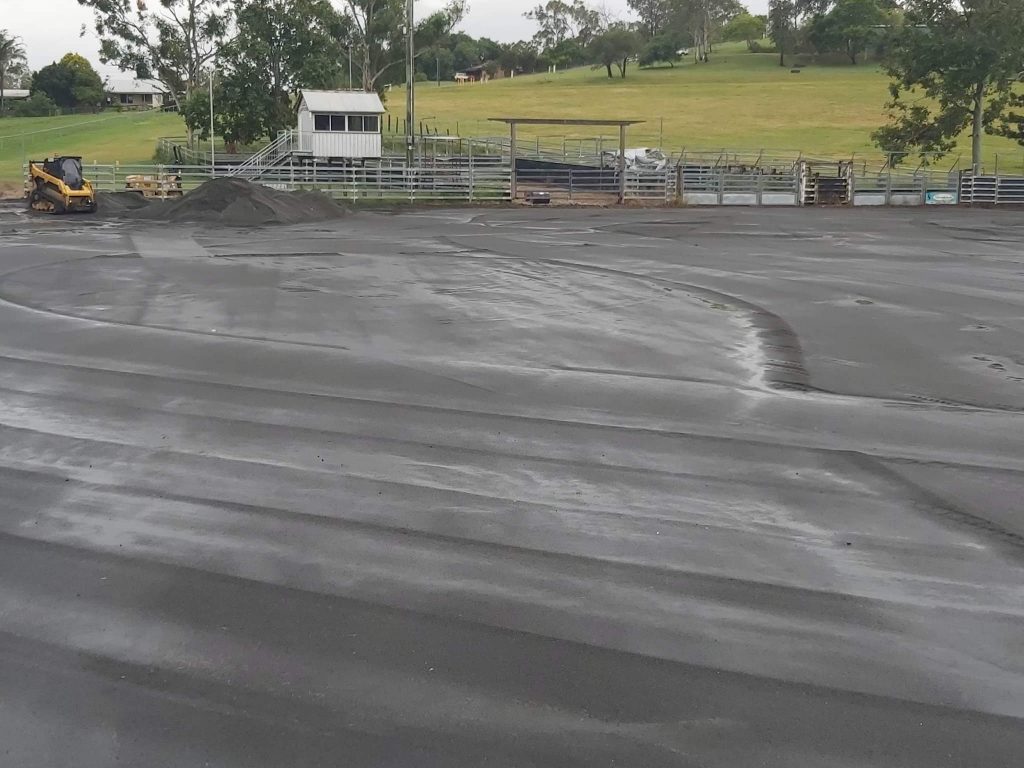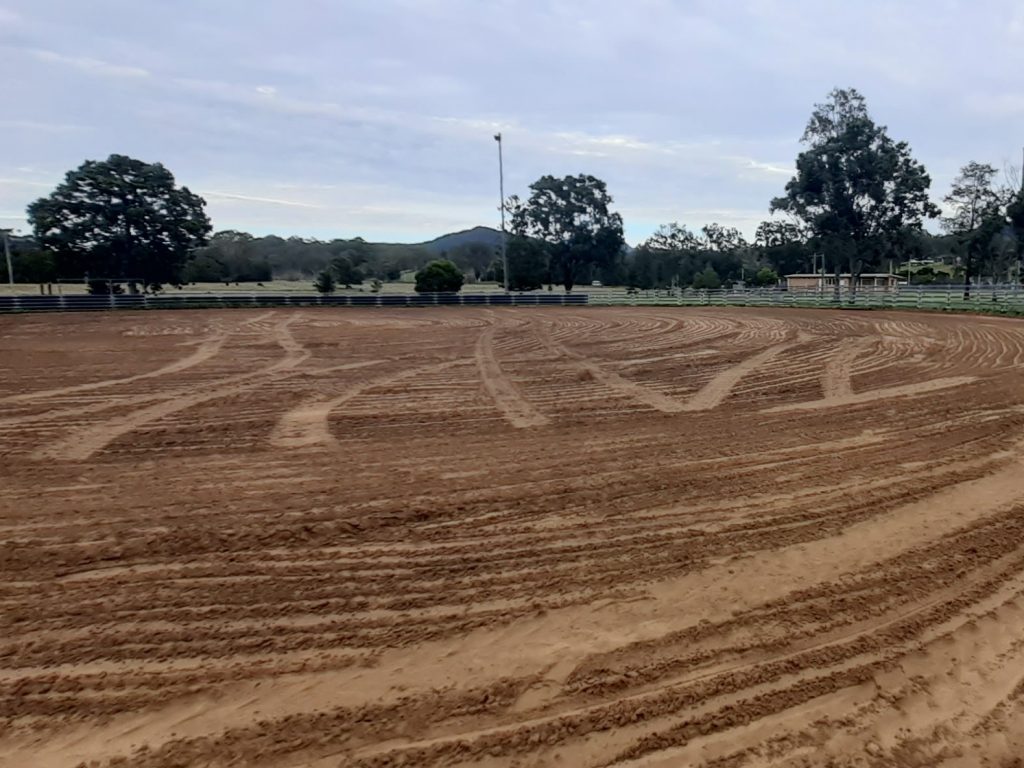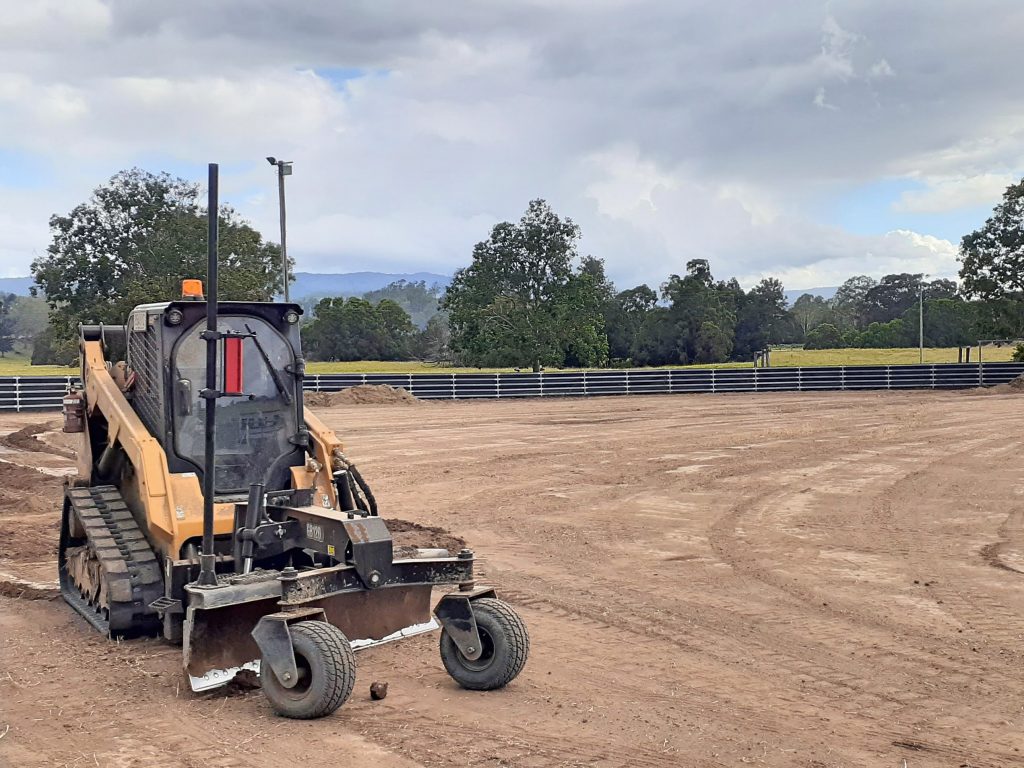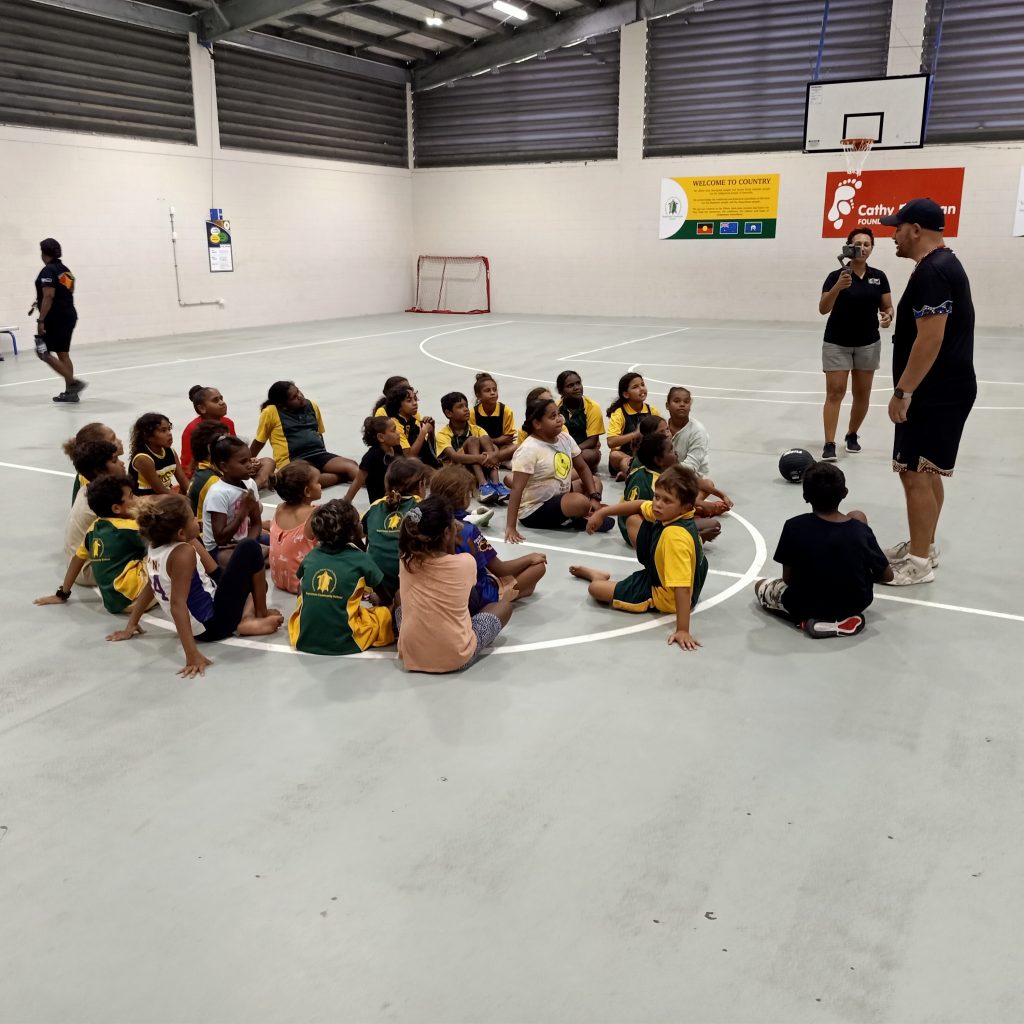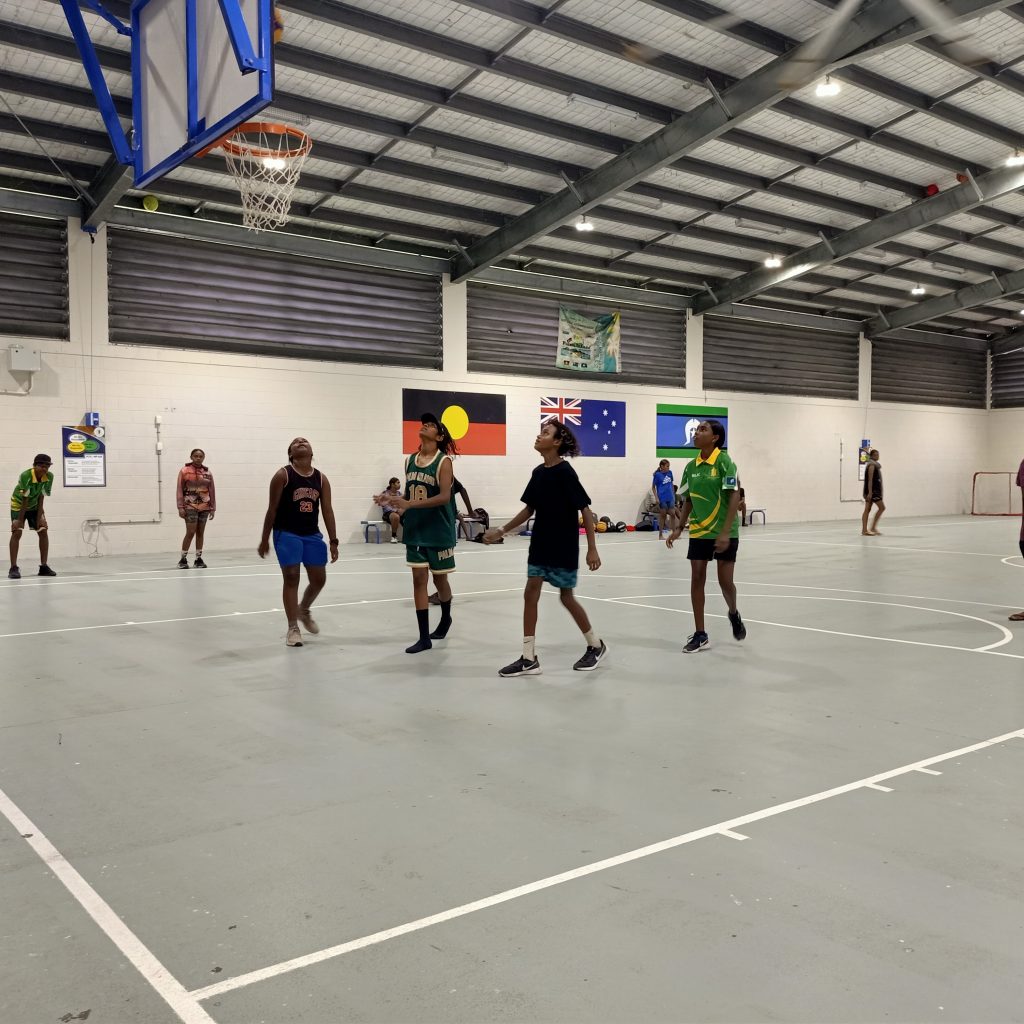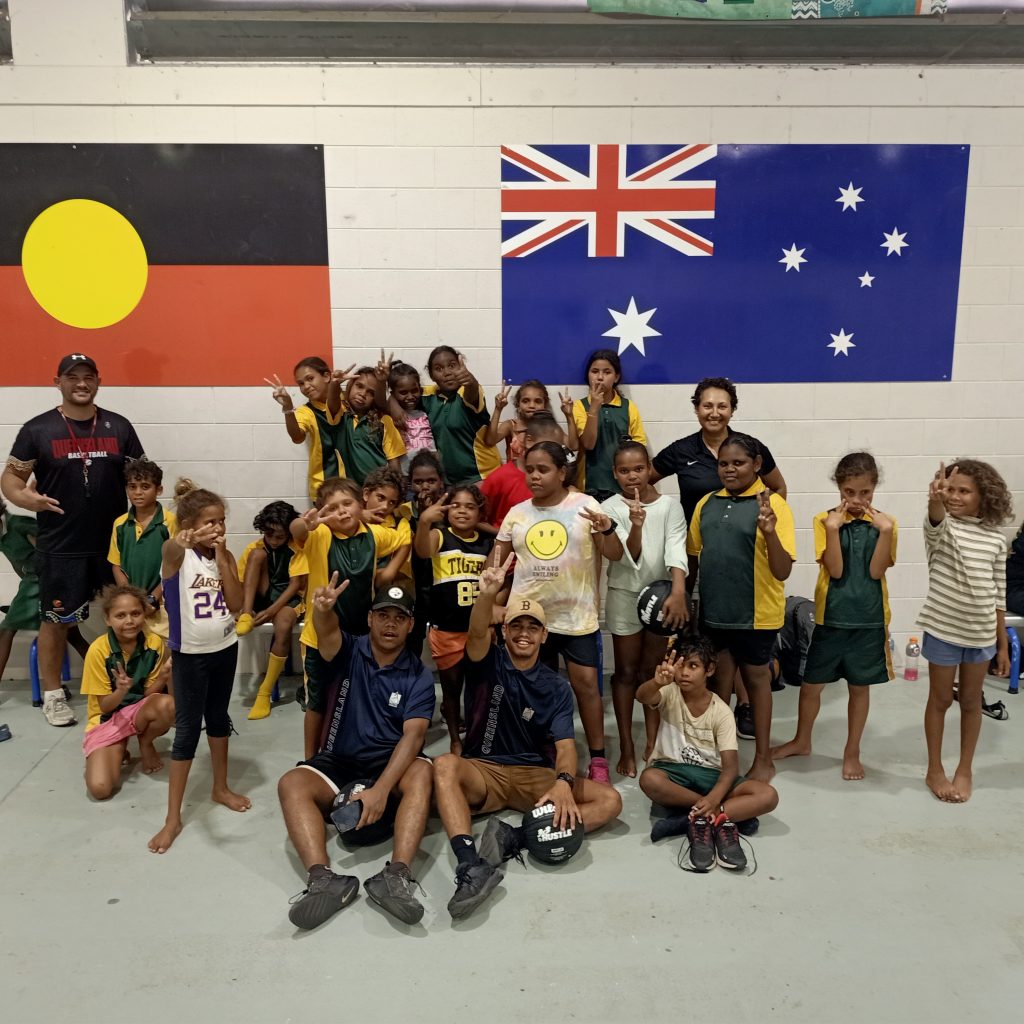Foundation for Rural & Regional Renewal (FRRR)
In partnership with the Sally Foundation and ABC, FRRR is awarding grants to support six young leaders who are working on projects that respond to challenges, issues and opportunities in remote, rural and regional Australia. The young people have partnered with local community organisations to receive the grants.
Through a Giving Sub Fund, the Sally Foundation partners with FRRR to ensure that funding reaches groups that they could not normally fund, usually due to their tax or organisational status.
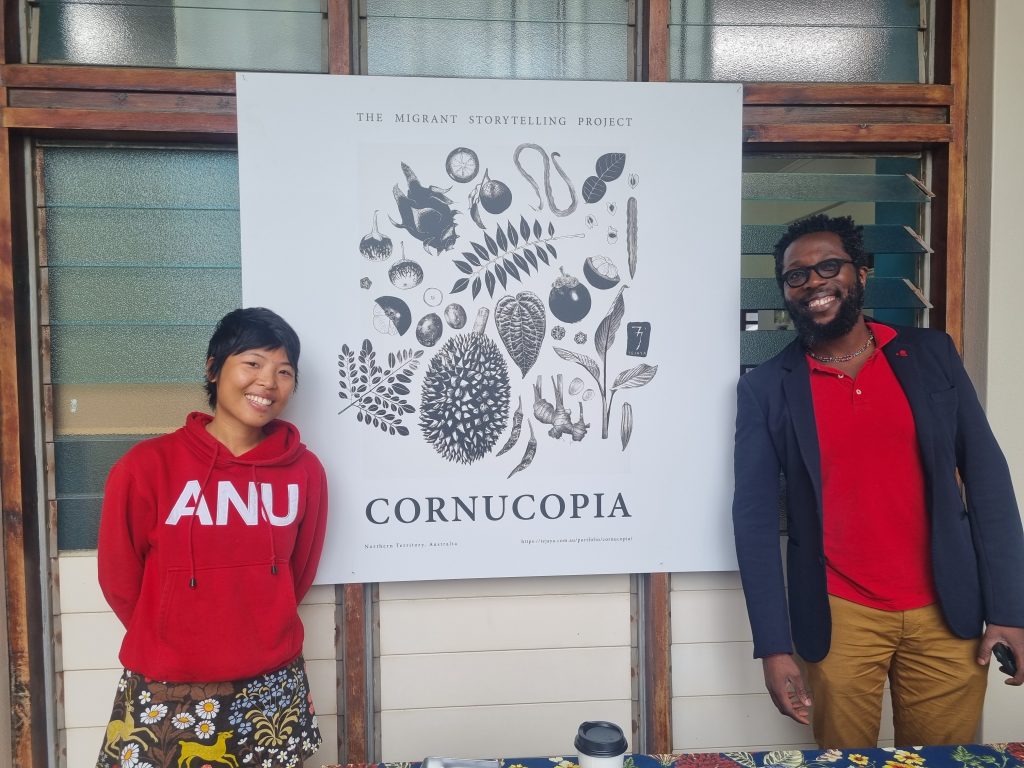
This is the third round of this program, which builds on ABC’s Trailblazer program, which in turn builds on the Heywire program. This round was designed to help Trailblazers from 2021 or 2022 develop their leadership skills and their capacity to make a difference in their communities.
Co-founder of The Sally Foundation, Geraldine Roche, said “In establishing the Trailblazer Development Fund, Mike and I have sought to provide assistance at a key point in these community leaders journey to further their projects.”
FRRR’s Philanthropic Services Manager, Jo Kemp, said that the partnership between Sally Foundation, ABC and FRRR to offer this program is an exciting way to build the skills of young people.
“These six grants will help these Trailblazers grow momentum for their ideas, get runs on the board and then be in a position to leverage their experience for future funding opportunities.
“It’s a fantastic opportunity for the young people who have developed their projects through the ABC Heywire program to shape them into a ‘funding-ready’ application. A huge asset to the program is having Trailblazer alumni participate on the grant Advisory Panel, providing unique insights, curiosity and constructive feedback to the applicants.
“This year’s successful applicants tackled a range of issues, including access to STEM learning for children in remote communities, increasing wildlife rescue volunteers on the Limestone coast and raising awareness of children living with chronic illnesses in rural and regional NSW. The diversity of projects and people supported is a wonderful example of the range of issues that are driving young leaders in rural and regional communities across Australia,” Ms Kemp said.
Read the full list of projects supported below.
| Organisation | Project | Location | Grant | |||
|---|---|---|---|---|---|---|
| NEW SOUTH WALES | ||||||
| Hunter Business Centre | Jack’s Digital Outreach: The Giggle and Learn Program Grow community awareness and involvement of children living with chronic illness in regional areas through the creation of fun and engaging media content and educational resources. | Newcastle | $6,330 | |||
| NORTHERN TERRITORY | ||||||
| Melaleuca Refugee Centre Torture & Trauma Survivor's Service of the Northern Territory Inc | Cornucopia Build the capacity of Trailblazer participant to deliver an art and storytelling project profiling rural and regional migrants and refugees in the Northern Territory through the purchase of software, office supplies, and furniture. | Darwin | $5,330 | |||
| QUEENSLAND | ||||||
| RoboCoast Sunshine Coast Robotics Association | Red Dirt Robotics Increase access to STEM learning, including robotics and coding, for regional and remote children by building the operational capacity of Red Dirt Robotics. | Sunshine Coast | $4,335 | |||
| Rotary Club of Sunnybank Hills Inc | Skating Towards Inclusion Boost community awareness and accessibility for people with disabilities to participate in a wider range of activities through Wheel Chair Moto Cross skate park demonstrations events and workshops in regional towns and cities. | Sunnybank Hills | $4,340 | |||
| Royal Flying Doctor Service of Australia (Queensland Section) Limited | Aviatrix Australia Increase awareness of aviation career pathways for students in rural communities, particularly girls, through an educational podcast series and school visitation program. | Townsville | $4,335 | |||
| SOUTH AUSTRALIA | ||||||
| South East Animal Welfare League of South Australia Inc | Rescuing the Rescuers Increase availability of wildlife rescue services across the Limestone Coast in SA through delivery of training, supplies and equipment, and essential health vaccines for volunteers. | Mount Gambier | $5,330 | |||
Fourteen mental health initiatives across remote, rural and regional Australia will share in $204,607 in grants awarded through FRRR’s In a Good Place (IAGP) program.
Thanks to CCI Giving, the charitable foundation established by Catholic Church Insurance (CCI), these grants will support grassroots, community driven projects that increase social participation, help to reduce social isolation and encourage community members who are at risk of, or are experiencing, mental health issues to seek help. FRRR and CCI Giving are now in the fifth year of their partnership.
This year, the grants range from $8,000 for an initiative that will build the confidence of primary school children in Mount Murchison, QLD to $20,000 for a project that will help various communities in the Northern Territory to better understand what a developing mental health problem or crisis looks like, and respond appropriately.
Jeremy Yipp, CCI Chief Risk Officer of CCI and Chair of CCI Giving, said that the sustained interest in the program is a sign of how essential it is.
“Each year, we receive applications and expressions of interests that really highlight the gap in funding when it comes to flexible grants that are geared towards grassroots mental health programs and services. The goal of this program is to help fill that gap and offer rural communities a say in how their mental health resources are used. After all, they are the people who are being directly impacted,” said Mr Yipp.
Natalie Egleton, CEO of FRRR, said this program is particularly crucial now because of the increase in mental health struggles in rural Australia stemming from pressures of the pandemic and other natural disasters like floods, bushfires and drought.
“The last few years have seen remote, rural and regional communities facing challenges like never before. Often these events occur one after the other – or even at the same time. This has meant that many people in rural communities have been unable to access mental health services or support at a time when they need it most.
“In this round, we were delighted to see an increase in applications from the Northern Territory. Remote communities are often the places with the most limited access to mental health services, so it’s great to be able to help fill that gap. We also saw more requests for funding to support initiatives focussed on young people, and again, we are pleased to be able to support several of those projects to help equip them with the skills and strategies to cope with the many challenges they face,” said Ms Egleton.
Some of the 14 initiatives being funded include:
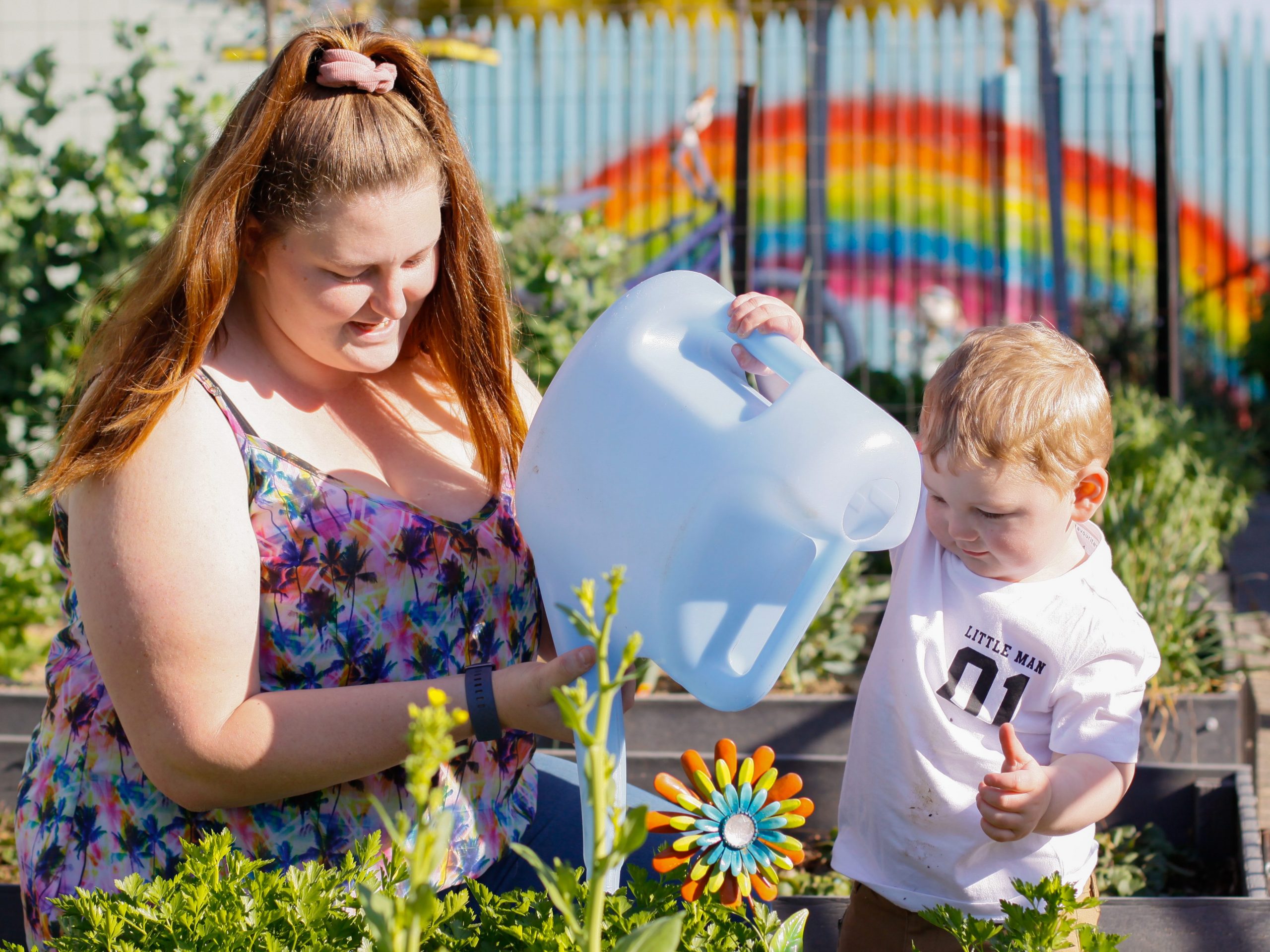
- Trustee for St Francis Xavier Primary, Lake Cargelligo – Lake Cargelligo, NSW – Earlymind – $9,062 – Develop resilience, a positive mindset andawareness of self by implementing and embedding The Resilience Project School Partnership Program to support the social and emotional health and wellbeing of students and the broader community.
- Bluearth Foundation – Ltyentye Apurte, NT – Active Leaders Ltyentye Apurte (Santa Teresa) – $13,000 – Develop the confidence, resilience and self-awareness of senior students to enable them to create and guide physical activity and wellbeing programs for the primary school students to encourage and promote physical and mental health and wellbeing.
- Kanyini Connections Ltd – Doonan, QLD – Young Veterans PTSD Program – $20,000 – Support a tailored equine therapy program by providing funds for essential program materials, equipment and consumables to assist 48 young veterans living with Post Traumatic Stress Disorder who have not responded to other therapy options.
- Lameroo Forward Inc – Lameroo, SA – Southern Mallee Mental Health Presentations – $10,000 – Grow community understanding of mental health and increase awareness by bringing in a guest speaker to share vital tips and advice at two community presentations.
- Zoe Support Australia – Mildura, VIC – Mentally Healthy Mothers – $20,000 – Augment the current support for vulnerable young mothers by employing a case manager to provide support wrap around support, connections with community supports and knowledge around mental health for those who are struggling with their mental health.
- Tradies IN Sight – Dubbo region , NSW The Real Reconnections Tour $10,000 – Support tradies in rural communities to connect and develop trusted relationships that support, empower and encourage gain better understanding of mental health issues and break down stigma around dealing with emotional struggles.
The full list of grant recipients and their projects are below.
| Organisation | Project | Location | Grant | |||
|---|---|---|---|---|---|---|
| NEW SOUTH WALES | ||||||
| The Rural Woman Co-Operative Ltd | Mental Health Matters - Circles of Support Enhance the mental health and wellbeing of rural women by providing a series of professionally facilitated and moderated online groups and a training program to enable participants to connect, learn, seek support and thrive. | Armidale | $14,100 | |||
| Tradies IN Sight Inc | The Real Reconnections Tour Support rural communities to connect and develop trusted relationships that support, empower and encourage gain better understanding of mental health issues and break down stigma around dealing with emotional struggles. | Dubbo, Tullamore, Narromine, Coonamble, Parkes | $10,000 | |||
| Trustee for St Francis Xavier Primary, Lake Cargelligo | Earlymind Develop resilience, a positive mindset and awareness of self by implementing and embedding The Resilience Project School Partnership Program to support the social and emotional health and wellbeing of students and the broader community. | Lake Cargelligo | $9,062 | |||
| NORTHERN TERRITORY | ||||||
| SabrinasReach4Life Inc | Heads Up Increase the capacity and confidence of local communities to better understand what a developing mental health problem or crisis looks like, and develop the skills and confidence to offer and apply help offering behaviours to reduce the incidences of suicide. | Darwin, Jabiru, Litchfield, Katherine | $20,000 | |||
| Bluearth Foundation | Active Leaders Ltyentye Apurte (Santa Teresa) Develop the confidence, resilience and selfawareness of senior students to enable them to create and guide physical activity and wellbeing programs for the primary school students to encourage and promote physical and mental health and wellbeing. | Ltyentye Apurte (Santa Teresa) | $13,000 | |||
| QUEENSLAND | ||||||
| Chinchilla Family Support Centre Inc | Eating With Friends in Chinchilla Increase social connection and awareness of support services by initiating an Eating With Friends program to improve the mental health of isolated members of the community, particularly older people and FIFO workers. | Chinchilla | $11,950 | |||
| Kanyini Connections Ltd | Young Veterans PTSD Program Support a tailored equine therapy program by providing funds for essential program materials, equipment and consumables to assist 48 young veterans living with Post Traumatic Stress Disorder who have not responded to other therapy options. | Doonan | $20,000 | |||
| Mount Murchison State School | Game Changer: helping Students Achieve their True Potential Cultivate confidence in primary school children to cope with life and change by supporting five schools to implement a locally facilitated program, including staff development, to foster positive learning environments and enhance social and emotional wellbeing. | Mount Murchison | $8,000 | |||
| SOUTH AUSTRALIA | ||||||
| Lameroo Forward Inc | Southern Mallee Mental Health Presentations Grow community understanding of mental health and increase awareness by bringing in a guest speaker to share vital tips and advice at two community presentations. | Lameroo | $10,000 | |||
| VICTORIA | ||||||
| Crossenvale Community Group Inc | Yarn in the Park Create a safe, welcoming space for locals experiencing mental health issues to attend weekly support group sessions to receive support, connection, information and resources. | Echuca | $18,295 | |||
| Zoe Support Australia | Mentally Healthy Mothers Augment the current support for vulnerable young mothers by employing a case manager to provide support wrap around support, connections with community supports and knowledge around mental health for those who are struggling with their mental health. | Mildura | $20,000 | |||
| Let's Talk Foundation Ltd | LETS TALK, Woolshed to Clubhouse Build community engagement with the LETS TALK initiative through a series of local presentations that encourage helpseeking behaviour, and raise the level of community competence in supporting someone with mental health issues. | Terang, Hamilton, Port Fairy | $15,225 | |||
| WESTERN AUSTRALIA | ||||||
| Northam Senior High School | Northam Senior High School Social and Emotional Learning (SEL) Program Improve the knowledge, skills, and selfefficacy of Northam SHS staff and parents/caregivers to teach, model and support social and emotional competencies to students, and support students to improve their own social and emotional wellbeing. | Northam | $20,000 | |||
| York District High School | Social and Emotional Learning Programs Improve the social and emotional wellbeing of K-Year 10 students through teacher training and purchase of resources to support the implementation across the school curriculum. | York | $14,975 | |||
Picture this: the year is 1919 and you’re standing on the white sandy beach of Lucky Bay on the Eyre Peninsula coast in South Australia, looking up at the first beach shack to be built on the beach. The sun is warm, the water is perfect, and Lucky Bay is the idyllic holiday spot for the surrounding communities of Cowell, Kimba and Cleve.
Now in the 21st century, there are 125 beach shacks, and families from all around still come to visit the Bay!
The Lucky Bay Shack Owners Association (LBSOA) was established in 1950, and its role is to improve the environment and lifestyle of the Lucky Bay settlement for all residents and visitors to enjoy. This includes making sure the beach and local facilities are ship shape and ready to go for incoming holiday makers who are able to rent the beach shacks, as well as local fishermen and caravanners who use the facilities.
With an active role in the community, LBSOA wanted to do something that would bring some joy and a smile to the faces of the visitors to their little town. After prolonged drought, many locals were finding that holidaying with the family was simply a luxury not afforded, especially with livestock to attend to. But Lucky Bay is only 15 km north of Cowell, which makes it a perfect location for farming families to escape to, while still being able to tend to their farms.
Safe play = laughing children and happy parents
LBSOA sought funding from FRRR through the Tackling Tough Times Together (TTTT) program to support their ‘Laughter at Lucky Bay’ project, which would see a three staged plan to make the holiday destination more enticing by developing a child safe playground and surrounding facilities for parents and adults to enjoy.
Funded by the Australian Government, LBSOA received a $51,597 TTTT grant towards stage one of the plan: the purchase of new playground equipment, shade structures, soft fall sand, and fencing.
LBSOA’s President Sue Chase said they were overwhelmed by the community response, once they saw the works underway.
“What we were most astounded by is people’s enthusiasm to participate in working bees, and I think this stemmed from them seeing the playground come to life. Many people in the community provided their time to get the playground up and running. We are also proud of the funds we have raised. Our first ambition was to raise enough funds to contribute our share to the ‘Laughter at Lucky Bay’ playground project. However, we were amazed at the success of our fundraising, which, together with the other grants we received, allowed us to construct a shelter and install a BBQ shed and storage area near the playground,” she said.
The official opening of the playground in January 2021 was attended by hundreds of people who enjoyed the food stalls, jumping pillow, face painting and crab racing activities on offer.
These events not only raised vital funds to support the upkeep of the facilities, but also reinforced a real sense of community participation, lots of fun and helped people get to know one another better.
When asked what they were most proud of, LBSOA said the sheer number of children and even teenagers taking full advantage of the new playground made them so pleased. Extra facilities like a table and chairs and the BBQ have also encouraged parents and adults to spend time together and socialise, giving them a break from the ongoing pressures and stressors that drought can bring.
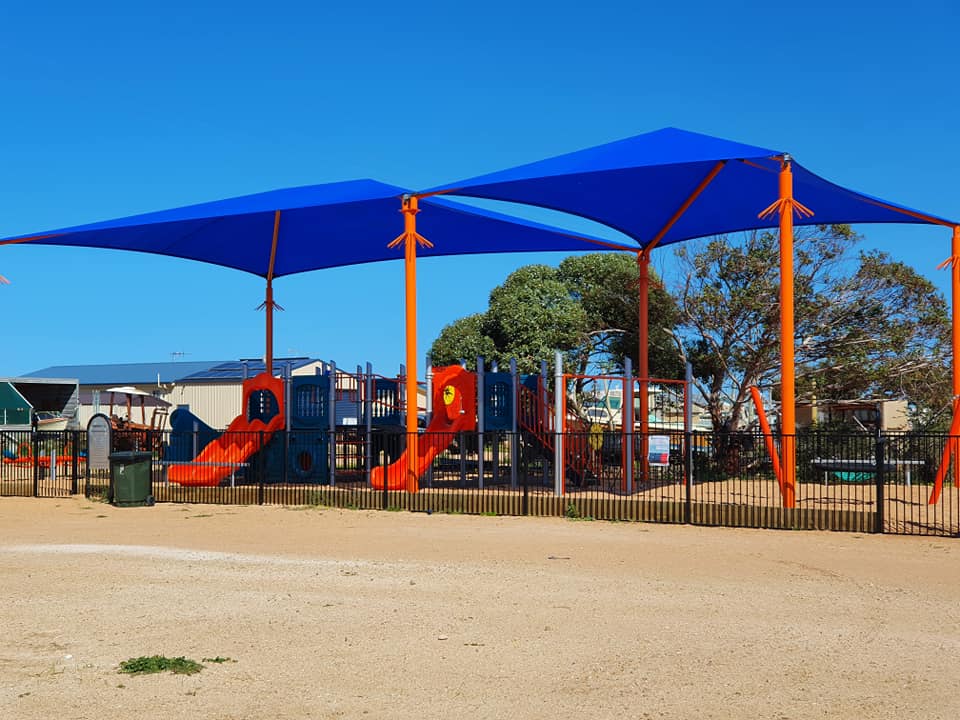
In many aged care facilities social isolation among elderly residents has been an ongoing battle, especially during COVID, as restrictions and lockdowns prevented family and friends visiting loved ones for almost two years. Luckily for the residents of Eventide Lutheran Homes (ELH) in Hamilton, Victoria, the future is now looking decidedly more social.
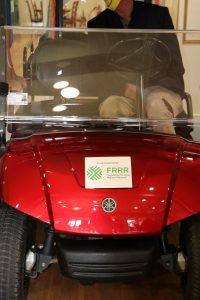
Thanks to a $10,000 Strengthening Rural Communities (SRC) grant supported by Ian Rollo Currie Foundation, ELH was able to purchase a golf buggy that has been assisting with the transport of residents with mobility and sight issues around the facility. This has been especially useful for building social connection among residents who previously may not have engaged with organised activities due to the difficulty of getting around.
The golf buggy has three seats available to move the residents around in a comfortable and protected way across the facility, including the gardens, the golf course, and any other location the residents wish to visit.
The purchase of the buggy has been an absolute success for not only the residents, but for the staff and volunteers as well. After 18 months of almost constant lockdowns, the volunteers and social activities staff have been very excited to see more activities in the facility and to see the enjoyment of the residents. Staff members have also been seen taking more ownership over projects and events within the facility.
In one instance, a resident was taken for a drive around a nearby golf course where he had previously played golf with a handicap of four for 50 years. He was visibly moved by the experience of visiting the golf course once again.
The buggy arrived at Eventide on the 8 November 2021 and was christened with a celebration morning tea and rides for residents outside. Unfortunately, the weather was not so kind, and the rides had to be cut short. But since then, the buggy has been moving people around the grounds with no issues.
“Apart from the obvious enjoyment of the residents it was exciting to see different staff members taking ownership and being part of the project. After 18 months of almost constant lockdown, none or very few volunteers and few social activities staff were very excited to have social activities in the facility and see the enjoyment of the residents. This had a positive effect on staff and they are busy planning events for the buggy.
Visitors who have been prevented from freely seeing their loved ones for almost 2 years have been excited and engaged in the project and will be able to take their loved ones for rides outside.”
The NSW / VIC border towns of Albury / Wodonga and surrounds were severely impacted by the cross-border lockdowns during COVID restrictions. THose who live in these adjacent communities consider them one town, yet community members were unable to cross the border unless there was an extenuating circumstance. That meant families were unable to support isolated elderly family members and those living in challenging conditions, and this was exacerbated by the devastating effects of the Black Saturday bushfires which also affected the community.
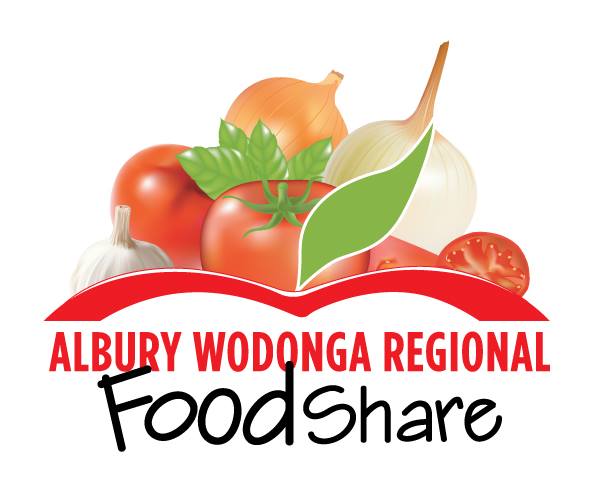
The COVID Regional Community Support program, which was funded by the New South Wales Government and delivered by FRRR, was designed to support community groups and associated volunteers that incurred expenses in delivering food and personal care items to individuals and families affected by COVID lockdowns, by contributing funds to support ongoing service provision.
One such organisation to benefit from this program with a reimbursement grant of $13,500 was Albury Wodonga Regional FoodShare, who has supported those in need in their community since 2011, and their response to the COVID-19 pandemic was remarkable.
FoodShare commenced their Community Pantry program in 2020, which enabled food hampers to be delivered directly to members of the community. To alleviate some of the hardship experienced by families in the region due to the long-term impacts of COVID and cross-border lockdowns, they also coordinated two local pop-up hamper drive-throughs in September 2021, which provided 300 families with emergency food relief.
During the peak of the COVID outbreak, 1,200 food hampers, including culturally appropriate ingredients, were distributed locally across the region. More than half of these were delivered directly to local homes as part of a coordinated COVID emergency relief effort.
To facilitate the immediate increase in demand for FoodShare’s services, operations were extended to seven days a week. This put a strain on resources, particularly on volunteers, but was necessary to keep the community safe. On average, 30 households received hampers each day, and in many instances, this doubled on occasions during the peak of the local COVID outbreak.
To provide specialised support for culturally and linguistically diverse (CALD) communities, FoodShare was supported by local organisations such as Albury-Wodonga Ethnic Communities Council (AWECC) and Murray Valley Sanctuary Refugee Group. These agencies took enquiries from CALD households who were in isolation due to the COVID outbreak. These agencies also assisted by nominating culturally specific ingredients and in some instances. their volunteers purchased additional food items and delivered these to the CALD households.
In addition to delivering hampers to local residents, FoodShare was also asked to deliver food and personal care hampers to various locations where people had been forced to isolate in accordance with Health Orders, including Rutherglen Hotels, Howlong and the Albury Caravan Park. Over 4,500 kilometres were logged from October to December last year on just one of the FoodShare vans, which was dedicated to supporting COVID operations. To support the heightened increase in demand, an additional van was also hired in November to support delivering hampers to COVID households.
This is a wonderful example of the critical role that so many local NFPs played, and the way in which they collaborated with other groups to support their community. FRRR is pleased to have been able to support this program and help the NSW Government to reimburse FoodShare for some of the costs incurred in supporting their community.
Local NFP groups sought as lead partners in 35 regions across remote, rural and regional areas
Following the announcement by Senator The Hon. Murray Watt, Minister for Agriculture, Fisheries and Forestry, the Foundation for Rural & Regional Renewal (FRRR) and the Australian Rural Leadership Foundation (ARLF) are pleased to announce the opening of the first program in the Helping Regional Communities Prepare for Drought Initiative.
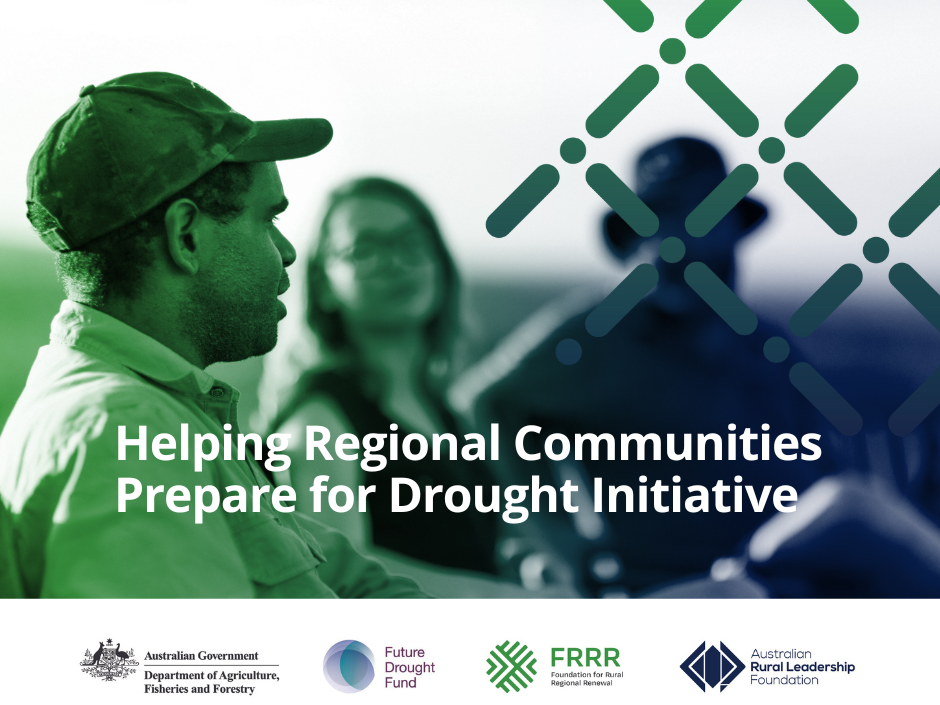
The Initiative is funded through the Australian Government’s Future Drought Fund and designed to help agriculture-dependent communities across remote, rural and regional Australia enhance their preparedness for drought.
The $29.6 million investment over three years builds on the Future Drought Fund’s previous Networks to Build Drought Resilience program (led by FRRR) and the Drought Resilience Leaders program (led by ARLF).
There are five elements to the Initiative, the first of which is the Community Impact Program. This is a place-based program designed to support community members and not-for-profit organisations in 35 regions across remote, rural and regional Australia to drive local action that helps prepare for drought. An integrated package of support for community networks, there are two main components:
FRRR’s Disaster Resilience and Climate Solutions Portfolio Lead Nina O’Brien said that the program takes a place-based approach, recognising the need for a bespoke approach in different communities.
“Rural communities are better able to withstand the impacts of events like drought when they are strong and well connected. The overall aim of this program is to facilitate increased social connection, strengthen network opportunities and link capacity building opportunities to ensure widespread local benefit, so that communities are better prepared for the future.
“That will look different in each community, which is why we’ll be working alongside community members and organisations to drive local action that best helps each community prepare for drought.
“We’ve clustered LGA’s into 35 regions and we’re seeking a locally-based not-for-profit to act as the lead applicant and work collaboratively with other local organisations to plan and undertake activities that increase drought preparedness over a multi-year period.
“The program has an emphasis on engaging First Nations communities and younger people in leading drought resilience planning and action.
“The Community Impact Grants can fund projects, events, initiatives, training, capability building and small-scale community infrastructure projects.
“This will be a very collaborative program, with FRRR and ARLF working closely on the ground with the successful communities to define priorities, scope and delivery of the project. In addition, there will be access to expertise and networking opportunities,” Ms O’Brien explained.
As part of the program, ARLF will offer a number of optional and complementary Leadership Development Activities at no cost to the successful applicants. These are designed to strengthen the leadership capabilities of communities to build individual and community drought resilience.
ARLF’s Chief Executive Officer Matt Linnegar said that because every lead organisation and region will be at a different point in their resilience journey, ARLF has a number of options that communities can tap into.
“We have five leadership development activities, ranging from intensive residential leadership programs to a series of deep-dives into particular leadership topics to group coaching. Each is underpinned by the concepts of adaptive leadership, resilience and network leadership.
“Applicants will need to include their preference for leadership development activities when they lodge their express of interest for the Community Impact Program, and we will work closely with applicants to refine their preferences as we move through the collaborative project design phase,” Mr Linnegar explained.
The locations and projects in each of the 35 regions will be chosen based on potential drought impact, community readiness and complementarity with other government and philanthropic investments.
Learn more about the program by visiting www.frrr.org.au/impact-program.
Interested groups can also join an online Information Session on 1 September at 12pm AEST. Register here: https://rural-leaders-au.zoom.us/meeting/register/tZIocOmsqzIvH9Re35odkOG0yqt99F7BPEga
The Rathdowney Memorial Grounds Association (RMGA) was established in 1947 to manage the Rathdowney Memorial Grounds and to organise an annual campdraft in honour of the young men in the district who lost their lives during the war.
Today, the Memorial Grounds and Caravan Park are managed by a small committee of local people, and the venue is used for a range of sport and community activities, including soccer, pony clubs, campdrafting, markets and camping. It also serves as a central place to coordinate the community response to natural disasters and emergencies, and was used by residents displaced in the 2019 Black Summer bushfires.
The annual campdraft is popular with locals and visitors alike, and central to the town’s identity and prosperity. It attracts around 1,000 visitors who come for the weekend and spend at the grounds and at local shops, making a vital contribution to the local economy. In 2020, the campdraft was cancelled due to COVID and the whole community suffered financially and socially.
The open-air equestrian arena at the Rathdowney Memorial Grounds was inundated by heavy rain in March 2021 and the arena surface was so badly damaged that the annual campdraft had to be postponed. Plans to refurbish the sand in the arena were delayed because the flood-damaged surface needed to be re-levelled, compacted and protected with crusher dust before new sand was added.
RMGA received a $15,000 Rebuilding Futures grant funded by Suncorp Group that allowed them to repair the equestrian arena, and to mitigate the impacts of future flood events on the Rathdowney Memorial Grounds.
President of RMGA Andrew Buchanan said that during the project delivery phase, the region continued to experience unprecedented rain, which held up the work. However this actually proved to be invaluable because the work that was being done was tested and could be improved straightaway.
“The arena is now safe to use regardless of the weather (exceptional circumstances not included), which allows the community to be able to plan and feel sure that our events will be able to go on regardless. The entire community is so grateful to be able to utilise the arena. This has had a huge impact towards the connectedness within our area.”
Located on the Eyre Peninsula is the town of Port Lincoln in South Australia. This is the home of essential organisations like Yarredi Services, whose purpose is to create a space where those who need assistance can receive it.
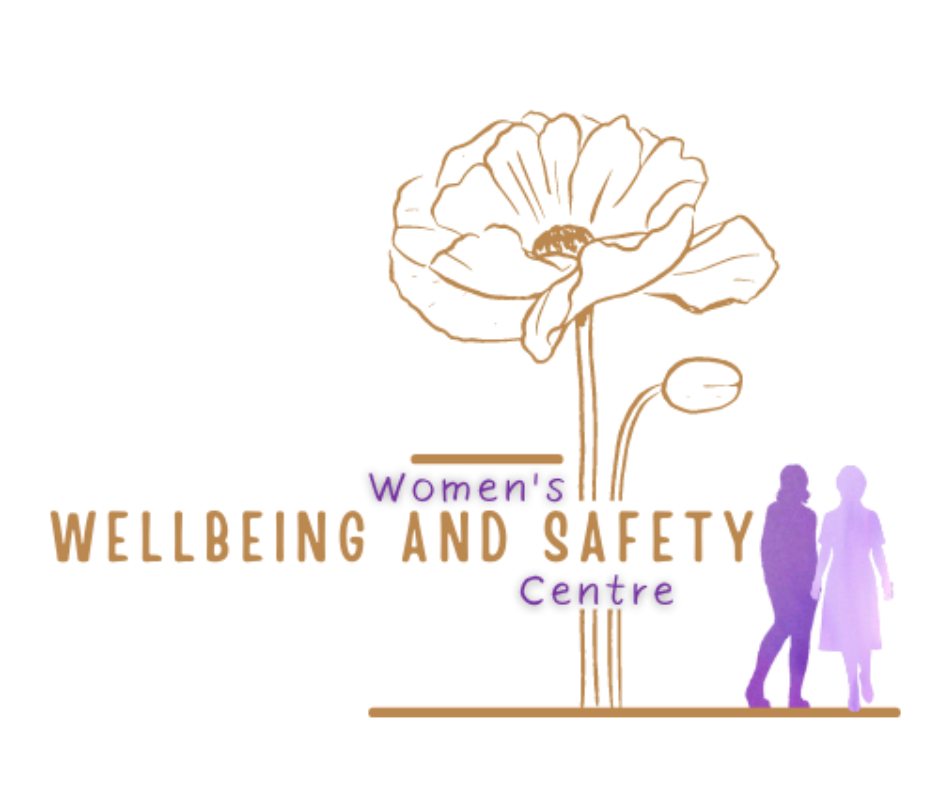
Yarredi Services works hard to support local women and children who are victims of domestic and family violence (DFV). Working in collaboration with the South Australian Police, local health services, Aboriginal health services and other not-for-profit agencies, Yarredi focuses on a diverse range of ways to address the needs of the people affected by DFV.
Founded in 1979, Yarredi Services currently works out of a centre that provides resources for their clients to take control of their own lives; the “Women’s Wellbeing and Safety Hub”. In partnership with ANZ, FRRR awarded Yarredi Services $5,184 through the Seeds of Renewal program, to fund the purchase of a range of laptops and office equipment to be used by clients.
The laptops at the centre will be in a safe environment where women and children can study, work, find housing and any other services they may need to access online. The benefit of using the laptops at the facility ensures a level of safety and privacy. According to Executive Officer Sharyn Potts, while access to technology can be empowering, it can also come with risks.“
Technology can be used to abuse or track individuals. It’s important our clients have access to computers and technology in an environment that’s supportive and informative. We want them to be able to put resumes together and manage their banking while learning information about how to avoid being tracked.”
Adapted from an article published by ANZ.
Palm Island (Bwgcolman) lies north of Townsville, off the east coast of Northern Queensland. The mostly First Nations community experiences chronic social and economic disadvantage, the ongoing impact of historical factors and events, discrimination and lack of support in the justice system and lack of access to (or ineffective) diversionary programs.
The Palm Island Police Citizens Youth Club (PCYC) was established in 2004, and works closely with the Indigenous Programs Development Unit, government agencies, community organisations and members to provide a range of programs that respond to issues faced by the community. The PCYC is well placed to partner with sporting and other local organisations to provide access to sporting and recreational opportunity for young Aboriginal and Torres Strait Islander people, as they are one of the only positive and neutral organisations where people can safely engage in positive and healthy ways.
Following extensive interactions and consultations within the community, PCYC Palm Island, in partnership with Indigenous Basketball Australia (IBA), delivered a 3×3 Street Hustle basketball tournament within the Palm Island community. The aim was to support physical and mental health, encourage community connection, achievement, pride and wellbeing in one of the most vulnerable communities of Australia. The tournament provided a platform for people of all ages, particularly young people, to participate in an organised and nationally endorsed tournament. It also contributed towards closing the gap for people on the remote Palm Island. Participants received online player profiles and rankings, providing them with the foundation to move on to additional tournaments.
In addition, PCYC Palm Island partnered with IBA to deliver school-based basketball development clinics with the two schools on Palm Island. This allowed young people to experience invaluable mentoring interactions with Joel Khalu (Basketball Queensland, IBA, and NBL Mackay Meteors coach) and Australian Olympian Annie Le Fleur (FIBA, WNBL, WNBA, Australian Women’s Team and Olympian). In total 441 students (231 girls, 210 boys) participated in the three coaching clinics, and 96 children and 48 adults competed in the Community 3×3 Basketball Street Hustle competition.
Despite experiencing a series of delays due to COVID and staffing issues, Phil Schulz, CEO of PCYC Palm Island, said that the program provided a foundation from which young people can build as they move on to greater challenges in sport and in life. It also provided community members with much needed social connection opportunities and the ability to participate in an activity that supports physical as well as mental wellbeing. This was all made possible thanks to a $10,000 Small & Vital grant from FRRR’s Strengthening Rural Communities program, funded by the Tim Fairfax Family Foundation.
“It was fantastic to get such quality mentors to deliver our program, and the kids were extremely engaged and excited to be involved to learn new skills. The competitions held were excellent in bringing the community together.
“Having such terrific mentors as Joel Khalu and Annie Le Fleur delivering this program with an extraordinary high level of passion and enthusiasm [was amazing]. They took the time to make sure all the kids got involved to realise levels of potential they possessed. Feedback from both schools was excellent with both requesting this become a yearly interaction.
”Importantly, the program also enhanced Palm Island PCYC’s relationships within the community and its ability to provide support and programming for young people, improve community partnerships and enhance the capacity of young people to participate in and lead future programs.
Take a look at the kids in action and listen to how the Basketball Queensland Indigenous Pathways Program (BQIPP) is making a positive impact on the local community!
Currie Park, Euroa’s retirement village, is run by the Old Colonist’s Association of Victoria (OCAV), which was established in 1896 to care for older Victorians in need. OCAV provides access to quality accommodation and care for people who could not otherwise afford it.
They received a $40,000 Caring for Ageing Rural Australians grant funded by the Ian Rollo Currie Estate Foundation to renovate and upgrade the facilities in five residential units in Euroa. The units were originally constructed in 1977, and were no longer fit-for-purpose, with the facilities being functionally out-dated and presenting a number of safety hazards.
Residents at Currie Park are aged between 68 and 92, and all suffer some form of physical illness, with many affected by arthritis and associated mobility issues. The conversion of bathrooms into wet rooms has meant that residents can now walk into the shower without having to step over the bulkhead. For those residents requiring assistance, there is now greater space for shower aids and attendants. The addition of non-slip vinyl flooring has increased the safety for residents like Ken, who had previously suffered a fall in the bathroom, but now feels much more confident navigating his surroundings.
The kitchens too also received a makeover, with the flooring also being replaced, along with new cooktops, and disability-friendly sink mixers replacing the old tapware. Shelley Calopa from OCAV commented that the renovation of units at Currie Park has directly benefited the families and care staff of the five residents whose units were refurbished, as well as the wider community, as local suppliers and tradespeople were utilised wherever possible. It is estimated that these renovations will benefit at least 25 residents in the future.
